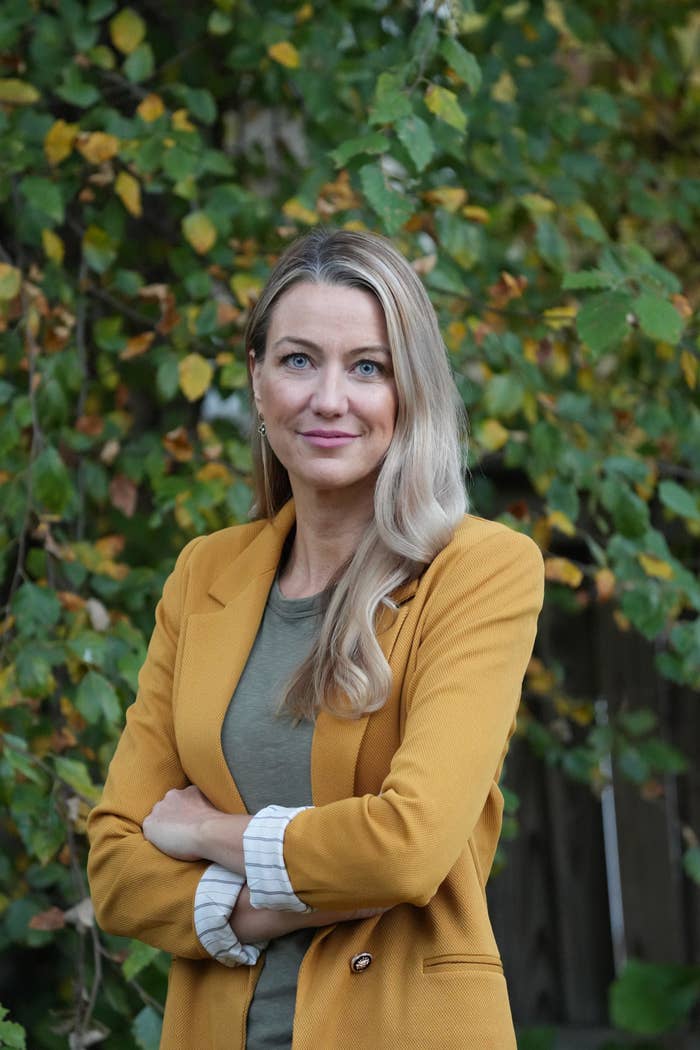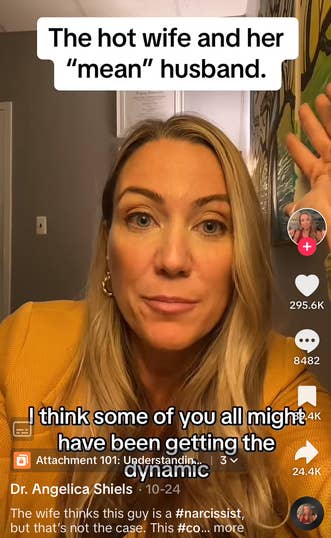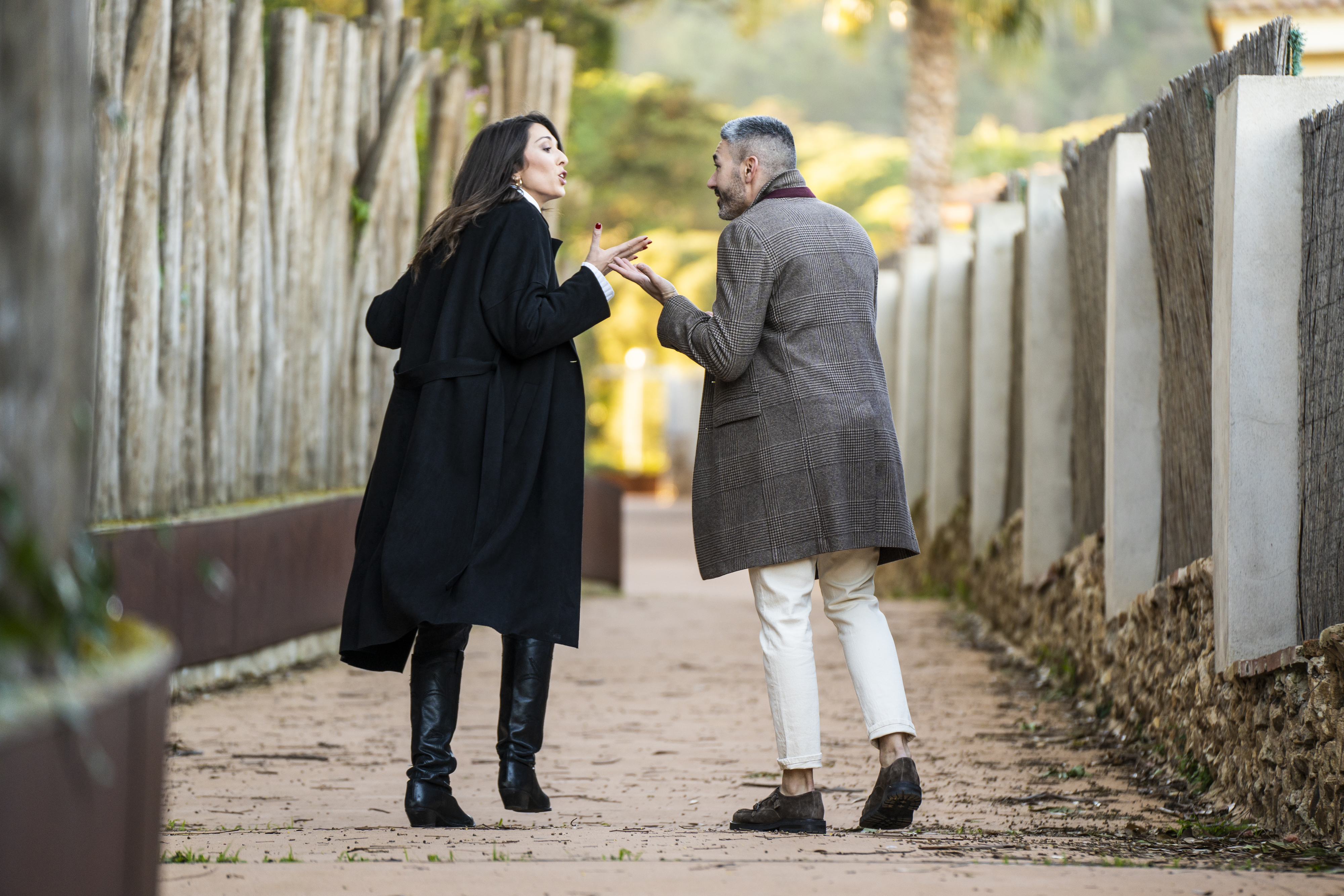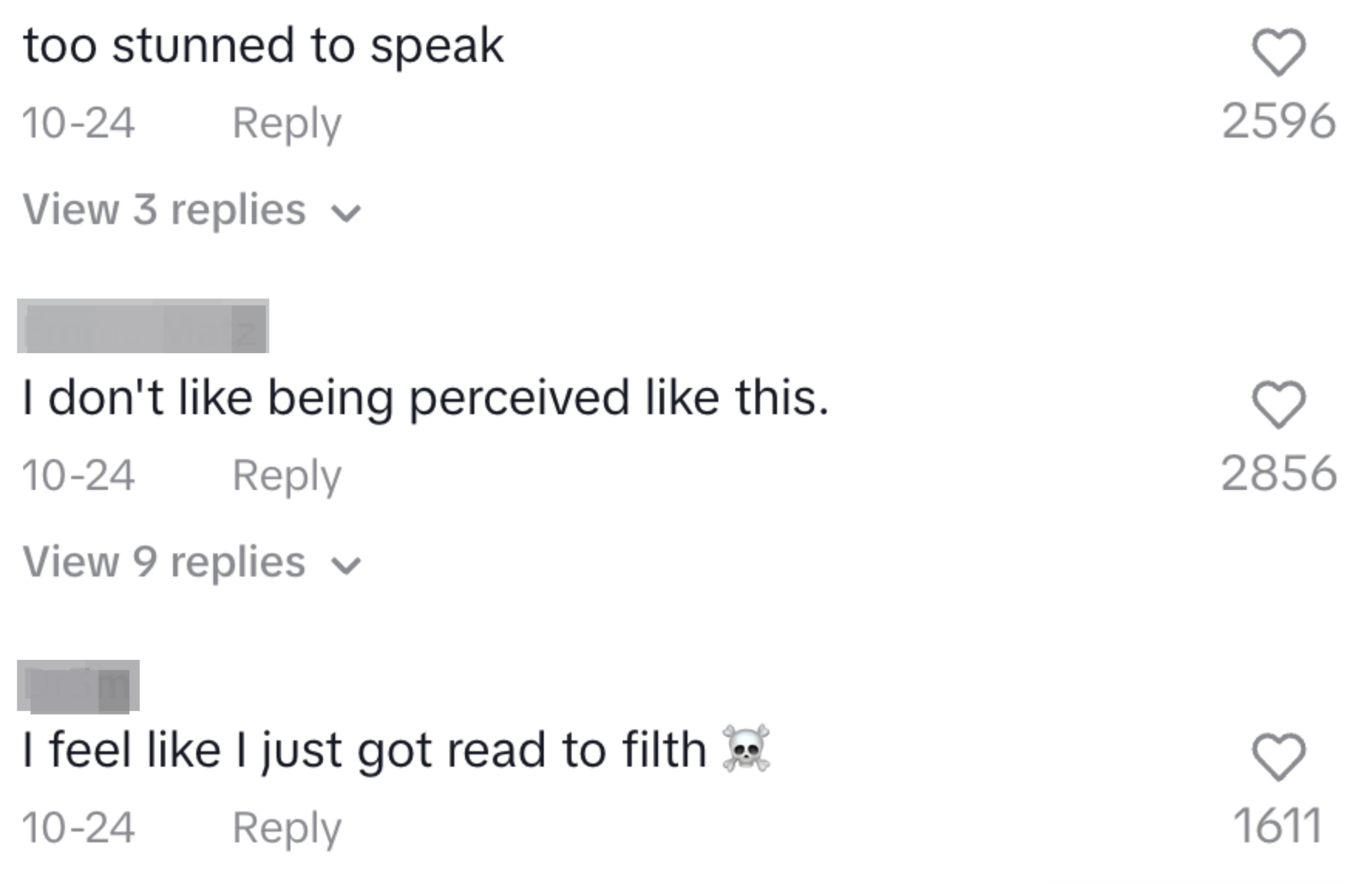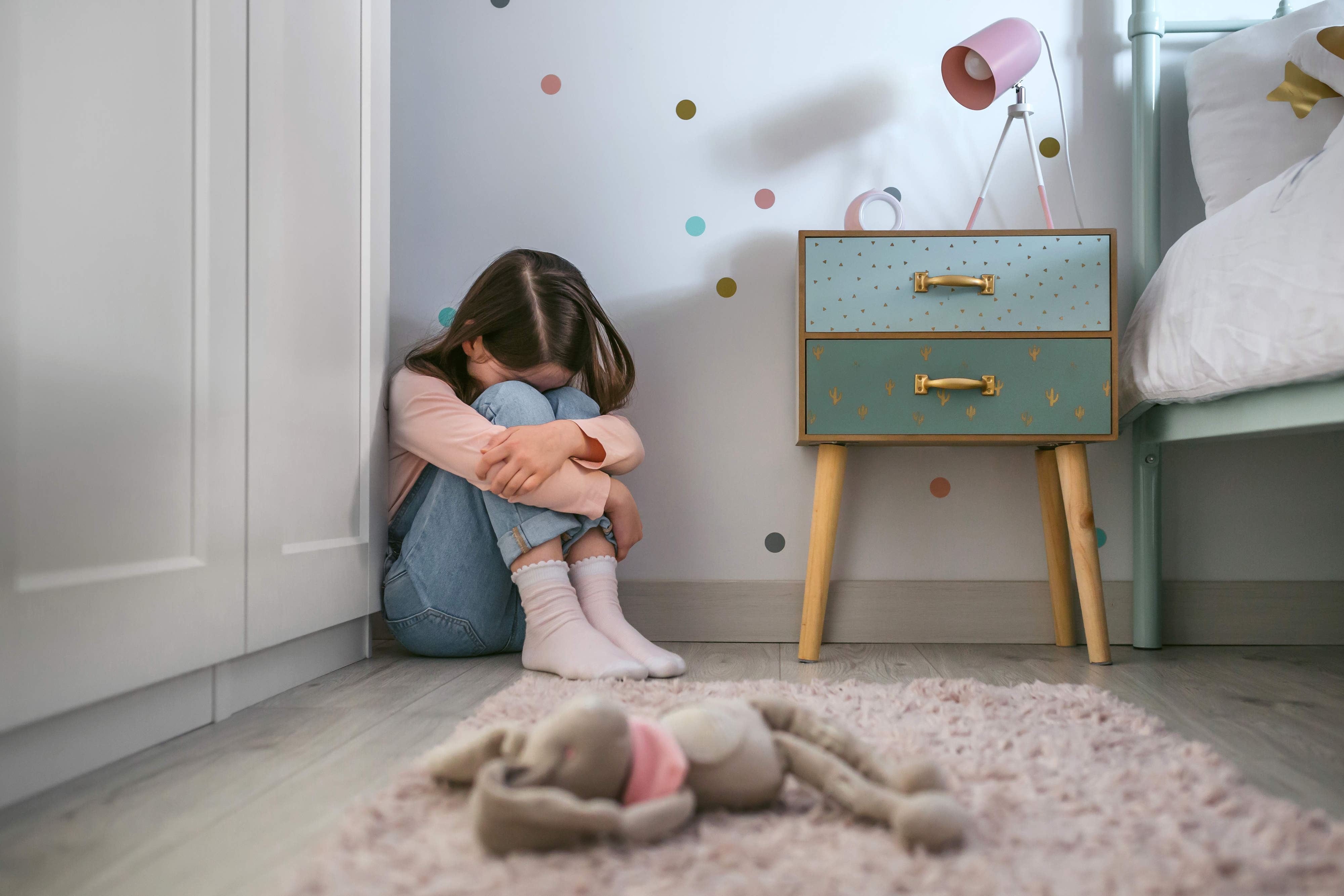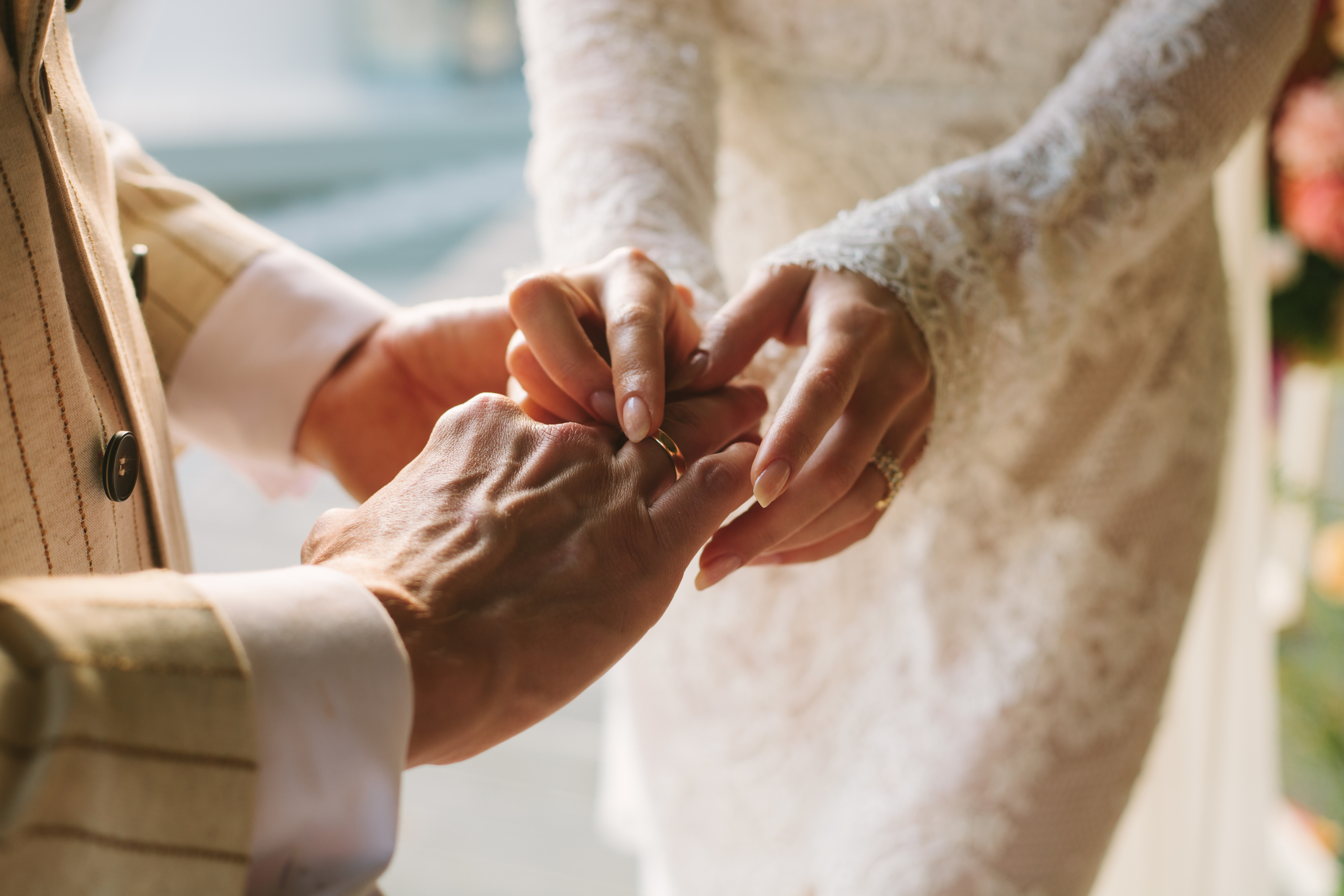I ’ve definitely know match like these , and her verbal description are spot on .
Recently, Maryland-based psychologistDr. Angelica Shiels(@dr..angelica.shie) has been going viral for her deep-dives into what makes various common types of couples tick, and people are stunned by how accurately she’s painted a picture of their relationships.
In her videos, she explores the hidden traumas and unvoiced needs that drive certain kinds of couples to be attracted to each other, and explains how these dynamics can lead to conflict.
For example, inthe case of the hot wife and mean/avoidant husband, she explains that problems can arise when, “The female’s deeper feelings and needs can’t help but bust through. ‘You never talk to me,’ she thinks, only she doesn’t say that out loud because that’s too vulnerable. She sets up a test to see if she doesn’t talk to her man, how long will it take him to notice?”
But she’s not just focused on the problems that can arise in these relationships. Dr. Shiels also digs into the ways these couples can find healing and happiness together.
For example , she shares that the hot wife / mean husband pairing is actually one of her favorites to treat , excuse , " They both have deep wounds to be heal , and in the safety of a therapy office with parameters around the exercises , they ’re wide open to bring around them . "
You can watch the full hot wife/mean husband video here:
The wife thinks this guy cable is a narcist , but that ’s not the case . This#coupledoes awing in therapy.#marriage#relationships#communication#wounds#corebeliefs#trauma#couplestherapy#healing#anxiousdisorganized#anxiousattachment#attachment#avoidantattachment#bigfive#bigfivepersonality#neurotic#anxiety#emotional#imago#partner#boyfriend#girlfriend#therapist
So many people mentioned sharing her content with their partners.
Like, she really nails it.
Dr. Shiels told BuzzFeed that she was inspired to make these videos after connecting the dots between her two favorite kinds of clients: couples and anxious kids. “Over the years, I began to notice that struggling couples tend to be grown-up kids with anxiousattachment styleswho never had their anxieties even acknowledged.”
And though she uses her own terms for the partners she discusses in her videos, Dr. Shiels says she’s based all of these archetypes on a specific combination of attachment styles, big-5 personality traits, and core beliefs. “I used known concepts in psychology and research, but completely made up silly names for each category, just to make them easier to remember.”
" For deterrent example , I called the internalise avoidantly - attached somebody with high conscientiousness and downhearted neuroticism the ' clueless hero , ' and the externalizing , disorganized - attached person with high psychoneurosis and blue conscientiousness the ' hopeless puppet master . ' "
She’s also made videos about what these couple archetypes were like as children. “So many people resonated with these videos that I even made some videos about what those partners were like as children, and people really saw themselves in those videos, too. Just like in therapy, anxious-reactive and anxious-disorganized people really want to feel understood and know that they’re not alone, and anxious-avoidant people want to know there is a fixable and known reason they are having relationship troubles.”
She also explained how understanding these common relationship dynamics can help people heal. “A lot of people walk around fearing that they are defective, hopeless, invisible, or abandonable, usually from some combination of their biology and painful experiences. Learning about attachment styles, core beliefs, early experiences, and even inborn personality factors, all help people to realize, ‘I’m not alone, and there’s nothing wrong with me. This is what humans predictably do when they’re scared, and there is a way to feel safe again.'”
" When both partners genuinely understand themselves and one another without condemnation , that little reverence inside of them begins to take a backseat , and they can be more present and less reactive and defensive . I perfectly love witness when a partner takes a lowly peril to throw off down her sentry go , and the other spouse is regulate enough to openly lean in and formalise it .
" understand where a person is on the burden - belief - attachment map also informs what that soul most needs in everyday lifespan in orderliness to detain feel regulated and secure . "
Dr. Shiels also cleared up a common misconception many people have about the role of couples therapy. “One of the most common misconceptions is that couples therapy makes things 100 percent comfortable,fair,andeven. Although good therapy will provide understanding, exercises, and scripts to regulate one another as much as possible, complete comfort and fairness are neither constant nor guaranteed.”
Finally, she says, “I also want people to understand that you don’t need to start out with secure attachment to have a great marriage. In fact, opposite attachment styles, like avoidant and reactive or avoidant and disorganized, tend to cultivate a lot of growth and deep connection!”
